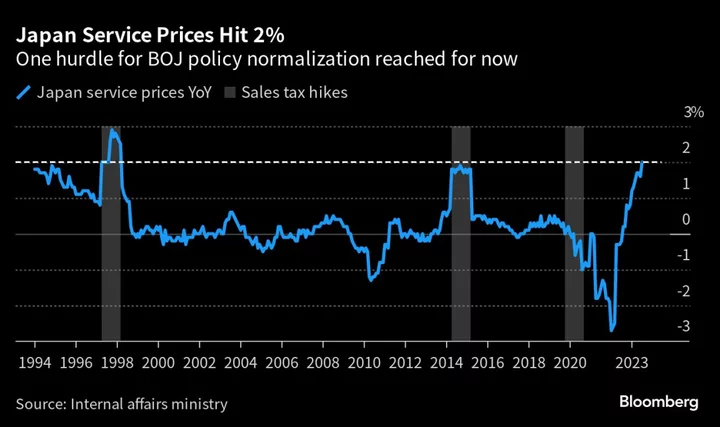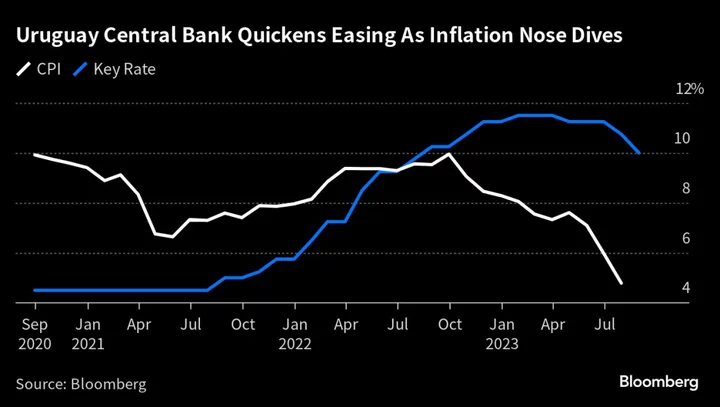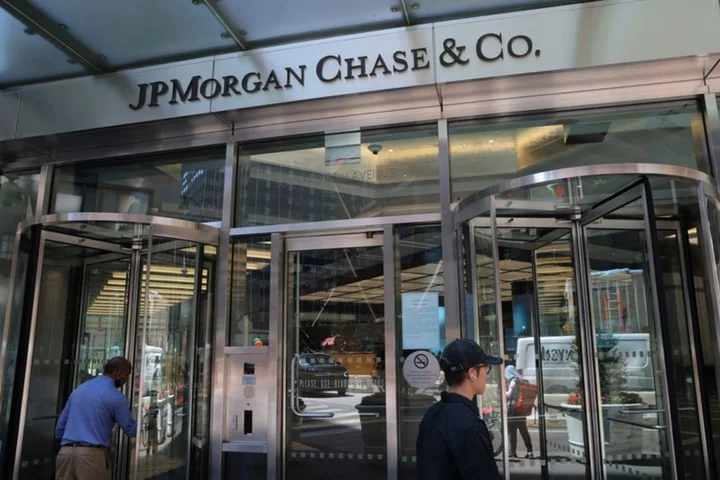Japan’s price growth in services hit 2% in July for the first time in 40 years, a long-awaited development for the central bank as it waits for evidence of sustainable inflation before laying out a path toward policy normalization.
Service inflation accelerated to 2% from 1.6% in June, driven by higher costs for telecom, lodging and entertainment, the internal affairs ministry reported on Friday. Barring the impact of a 1997 sales tax hike, service inflation had remained below 2% since 1993.
The Bank of Japan has been attempting to kindle inflation for a quarter of a century, adopting an especially aggressive stimulus campaign over the last decade when it set a target of 2% inflation on a sustained basis.
“At first, an external shock stoked inflation, but it’s already turned into inflation driven by internal factors. That’s what a pickup in service inflation tells us,” said Shunsuke Kobayashi, chief economist at Mizuho Securities Co. “Regardless of what they say publicly, I think the BOJ is getting ready to be able to move toward normalization whenever needed.”
Weak price momentum in services has kept Japan behind its peers in overall inflation as households coping with stagnant wage growth cut back on discretionary outlays for years. Friday’s data showed that dynamic may finally be changing after companies agreed to historic pay increases in this year’s annual wage negotiations. A surge in inbound tourism and pent-up leisure demand are also helping to spur price growth in services.
What Bloomberg Economics Says...
“Rising service prices are a clear indication that the underlying trend in inflation is strengthening in a way it hasn’t in a long time. But it’s not yet clear whether this will significantly deepen the BOJ’s confidence about achieving stable inflation.”
— Taro Kimura, economist
For the full report, click here.
The BOJ’s benchmark price gauge cooled to 3.1% from 3.3%, but economists are seeing signs that inflation continues to be sticky as it spreads deeply and widely. Price growth has exceeded the 2% target since April last year. Still, the BOJ has kept its easing program intact as it waits to see if wage growth will continue at a pace strong enough to boost consumption.









